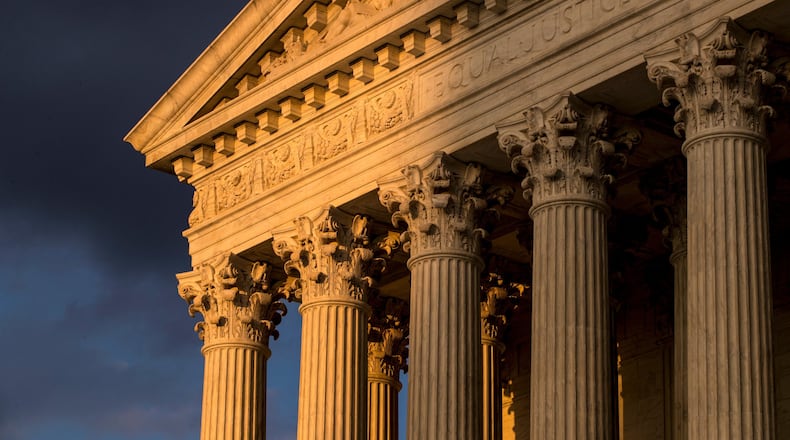A Georgia law that limits access to sexually explicit digital content through age-verification measures goes into effect later this year. But the U.S. Supreme Court is set to hear a challenge to a Texas law on Wednesday that could have implications for Georgia and other states that have passed similar measures.
The case being heard before the high court has sparked debate about how much censorship is too much and what is the best way to protect children from pornography. Supporters say these laws are a common sense solution to keeping children from sexually explicit content online. But opponents say the laws are ineffective and stifle the free speech of adults.
“People don’t want to scan their face, upload an ID, or undergo a background check in order to access really sensitive content,” said Mike Stabile, communications director of the Free Speech Coalition.
Georgia’s law, which goes into effect July 1, also requires social media platforms to “make commercially reasonable efforts” to verify that accounts are owned by users who are at least 16 or have received parental consent. Minors on the platforms could not be subjected to targeted advertisements or have their data collected on the platform. Violators would be fined $2,500.
In addition, the Department of Education is required to create programs for teaching online safety and internet use and provides a legal definition for “cyberbullying.” Backed by Lt. Gov. Burt Jones as a top priority last year, Georgia will require websites with more than a third of the content being “material harmful to minors” to confirm viewers are at least 18 through government-issued IDs. Violators would face $10,000 fines.
Stabile said the way many states — including Georgia — have implemented age verification is ineffective at preventing minors from accessing sexually explicit content and that there are more effective, less restrictive ways of doing so.
In the more than a dozen states where such laws are already in place, Stabile said people use virtual private networks (VPNs) as an easy way around restrictions. VPN users can cross regional online barriers, granting users a way to circumvent age verification restrictions on adult content.
“This is not technology that is unfamiliar — I think it might be unfamiliar to some legislators,” Stabile said. “But I think for anybody who works around the internet or grew up around the internet, it’s fairly common technology.”
He noted that around the time Florida’s age verification law took effect on Jan. 1, Google Trends found a surge in the number of searches related to VPNs in that state.
The Free Speech Coalition, which represents the adult film industry, has challenged age verification laws in Texas and six other states. Georgia is not among those states.
On the other hand, proponents of these laws say age verification for sexually explicit content is only meant to shield children from inappropriate content when adult content is more accessible than ever through smartphones.
“The problem is not only that kids have phones; it’s also that the amount of pornographic content has exploded,” Annie Chestnut, a policy analyst for the Heritage Foundation, wrote last year before the Georgia bill was signed into law.
Last week in Tennessee, a federal judge blocked a similar law for likely suppressing adults’ First Amendment rights without effectively protecting children from accessing harmful material. Tennessee’s attorney general’s office appealed the decision.
In the Texas case, the U.S. Supreme Court will decide whether to uphold a decision by Federal District Court Judge David Alan Ezra, who ruled that the Texas law would violate the First Amendment.
About the Author
Keep Reading
The Latest
Featured





